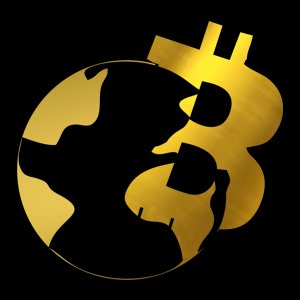Loopring Wallet Shutdown: Critical News for Users by June 2025
Hey there, crypto enthusiasts! We’ve got some important news impacting users of a popular Ethereum Layer 2 service. Loopring, known for its ZK-rollup technology, recently made an announcement that’s got many people talking. The core message? The Loopring Wallet service is scheduled to shut down. If you’re one of the many who rely on this particular crypto wallet, you’ll want to pay close attention to the details.
Loopring confirmed via a post on X (formerly Twitter) that its native smart contract wallet service will be discontinued. The final date for this is set for the end of June 2025. While this might sound alarming at first glance, especially for those holding assets within the wallet, it’s crucial to understand what this means and, perhaps more importantly, what it doesn’t mean for the broader Loopring protocol and the Ethereum L2 ecosystem.
Let’s break down the core announcement. The Loopring shutdown specifically targets the Loopring Wallet, which is a smart contract-based mobile wallet designed to interact seamlessly with the Loopring Layer 2 protocol. This wallet offered features like social recovery, daily withdrawal limits, and guardian features, aiming to provide a user-friendly and secure way to access the benefits of Layer 2 scaling on Ethereum.
The decision to shut down a service like this is rarely made lightly. While the official communication often focuses on strategic shifts or resource allocation, the reality can involve various factors. It could be due to evolving market conditions, the cost of maintaining and developing the wallet compared to its user base, or a strategic decision to focus resources entirely on the underlying protocol technology rather than the end-user application layer. Without explicit detailed reasons from Loopring, much of the ‘why’ remains open to interpretation within the community.
It’s important to distinguish between the Loopring Wallet application and the Loopring protocol itself. The protocol is the underlying infrastructure, the ZK-rollup technology that enables fast, cheap trading and transfers on Ethereum. The wallet was simply one interface for interacting with that protocol. The announcement clearly states the wallet service is shutting down, not the protocol. This distinction is vital for understanding the future of Loopring as a project.
If you are currently using the Loopring Wallet to store assets or interact with decentralized applications (dApps) on the Loopring Layer 2, this announcement has direct implications for you. The primary concern for users is the safety and accessibility of their funds.
By the end of June 2025, the wallet application will cease to be supported and likely become inoperable or unsafe to use. This means you absolutely must take action before that deadline. Leaving assets in the wallet beyond the shutdown date could result in losing access to them, or at the very least, facing significant complications in retrieving them.
This situation highlights a key aspect of self-custody in the crypto world: the responsibility lies with the user. While the wallet facilitated access, the underlying assets are on the blockchain, accessible via your private keys or recovery phrases (depending on the wallet type, Loopring Wallet uses a guardian/social recovery model). However, the *interface* provided by the wallet app is necessary for easy interaction. When that interface is removed, you need an alternative method.
The good news is you have ample time – over a year – to plan and execute your migration strategy. This isn’t a sudden, overnight closure, giving users a significant window to move their assets safely.
Migrating your assets from the Loopring Wallet doesn’t have to be a stressful process if you plan ahead. Here’s a simplified guide on the steps you should consider taking:
Remember the deadline: end of June 2025. Don’t wait until the last minute! Starting this process sooner rather than later will give you peace of mind.
The need to find a new wallet presents an opportunity to explore the diverse landscape of Layer 2 wallet options available for interacting with Ethereum L2 networks. Since your assets are on the Loopring L2, your new wallet needs to be compatible with this network.
What kind of wallets should you look for? You’ll generally be looking for wallets that support connecting to Layer 2 networks like Loopring. These could include:
When choosing a new crypto wallet, consider factors like security features (seed phrase storage, hardware wallet compatibility), user interface, supported networks (make sure it supports Loopring L2!), reputation, and community support. Do your own research (DYOR) to find the wallet that best suits your needs and technical comfort level.
As mentioned earlier, the Loopring shutdown applies only to the wallet service, not the underlying protocol. The Loopring protocol, a leading Ethereum L2 ZK-rollup, continues to operate and evolve. Its core function is to provide a high-performance, low-cost platform for trading and payments on Ethereum using zero-knowledge proofs.
The team’s decision to sunset the wallet likely indicates a strategic pivot towards focusing on the core protocol technology, developer tools, or other areas they believe will drive greater adoption and innovation within the L2 space. This isn’t necessarily a sign of the project failing; it could be a sign of maturity and a focus on its core strengths as a technological layer rather than an end-user application provider.
Users and developers can still interact with the Loopring protocol using compatible third-party wallets and interfaces. The network remains active, processing transactions and supporting decentralized exchanges and other applications built on it. The future of Loopring the protocol seems to be centered on its role as vital infrastructure for scaling Ethereum.
Looking back, the Loopring Wallet offered significant benefits, primarily by providing a user-friendly gateway to the advantages of Ethereum L2: incredibly low transaction fees and high transaction speeds compared to Layer 1. Its smart contract features like social recovery were also seen as innovative security measures.
However, the challenge now is the disruption caused by the Loopring shutdown. Users face the challenge of migrating assets, which requires technical understanding and careful execution to avoid errors. There’s also the challenge of finding a new crypto wallet that meets their needs and offers similar ease of use or desired features, especially for those accustomed to the specific functionalities of the Loopring Wallet.
This situation also highlights a broader challenge in the rapidly evolving crypto landscape: the reliance on specific applications or interfaces. While decentralization is a core tenet, accessing decentralized networks often requires centralized or specific software interfaces, which can be subject to change or discontinuation.
The announcement of the Loopring Wallet shutting down by the end of June 2025 is a significant piece of news for its users. It necessitates action to ensure the safety and accessibility of your digital assets. While the wallet service is retiring, the underlying Loopring protocol, a key player in the Ethereum L2 space, continues its mission to scale decentralized applications.
This transition period, though potentially inconvenient, serves as a crucial reminder of the importance of managing your private keys or recovery methods and staying informed about the services you use. By planning your asset migration now and exploring suitable alternative Layer 2 wallet options, you can navigate this change smoothly and continue to participate confidently in the decentralized future powered by Ethereum’s scaling solutions.
Don’t delay! Take the necessary steps today to secure your assets before the June 2025 deadline and transition to a new crypto wallet that supports your needs on the Loopring network or other preferred L2s.
To learn more about the latest crypto market trends, explore our article on key developments shaping Ethereum price action.
Disclaimer: The information provided is not trading advice, Bitcoinworld.co.in holds no liability for any investments made based on the information provided on this page. We strongly recommend independent research and/or consultation with a qualified professional before making any investment decisions.

Crypto-Ticker
2025/05/10 11:15
Bitget Blockchain4Youth Fuels Web3 & AI Innovation at Google Developer Group’s "Build with AI" Hackathon
Bitget , the leading cryptocurrency exchange and Web3 company, made a significant impact at Google Developer Group’s recent "Build with AI" Hackathon, held from May 2nd to 5th, 2025. Going beyond mere sponsorship, Bitget's Blockchain4Youth initiative actively engaged with over 130 bright student minds, exploring the convergence of blockchain and artificial intelligence.
The event, organised by Google Developer Groups (GDG) on Campus, provided a vibrant space for Bitget to connect directly with the next generation of tech innovators. During a dedicated presentation, the Blockchain4Youth Builder program was introduced, showcasing Bitget's commitment to nurturing young talent within the Web3 space. This participation highlights Bitget's forward-thinking approach to integrating blockchain education with emerging fields like AI, recognizing their combined potential.
While students tackled the creation of AI-driven models and early-stage products using Google's advanced tools, Bitget's presence offered a unique perspective on how blockchain can enhance and be integrated with AI solutions. This real-world interaction provided valuable insights for students, bridging the gap between theoretical knowledge and practical application within the rapidly evolving tech landscape.
"Education remains a core tenet of our mission, and through initiatives like Blockchain4Youth, we aim to equip the young generation with the skills to not just navigate, but to actively shape this dynamic sector." commented Vugar Usi Zade, COO of Bitget. “Collaborating with communities like the Google Developer Group offers a valuable opportunity to connect with bright minds and support their exploration of blockchain for impactful solutions. Blockchain4Youth will continue to expand its reach, fostering the growth of future Web3 leaders who can seize the immense opportunities this technology offers.”
This engagement at the GDG "Build with AI" Hackathon is a key component of Bitget's broader Blockchain4Youth program, the company's dedicated Corporate Social Responsibility (CSR) initiative. This program seeks to enable the next generation of Web3 leaders through learning opportunities and practical experiences.
Recent steps within the Blockchain4Youth program include the launch of Bitget's Graduate Program, designed to recruit top university graduates into blockchain and Web3. Additionally, the expansion of their Builders Program continues to supply promising Web3 individuals with firsthand experience through offline events, learning programs, and strategic community growth.
Bitget's active role in events like the Google "Build with AI" Hackathon shows its intent to spur innovation and equip aspiring tech professionals with the skills and connections to shape the future of Web3 and related advanced technologies.
Established in 2018, Bitget is the world's leading cryptocurrency exchange and Web3 company. Serving over 100 million users in 150+ countries and regions, the Bitget exchange is committed to helping users trade smarter with its pioneering copy trading feature and other trading solutions, while offering real-time access to Bitcoin price , Ethereum price , and other cryptocurrency prices. Formerly known as BitKeep, Bitget Wallet is a world-class multi-chain crypto wallet that offers an array of comprehensive Web3 solutions and features including wallet functionality, token swap, NFT Marketplace, DApp browser, and more.
Bitget is at the forefront of driving crypto adoption through strategic partnerships, such as its role as the Official Crypto Partner of the World's Top Football League, LALIGA, in EASTERN, SEA and LATAM markets, as well as a global partner of Turkish National athletes Buse Tosun Çavuşoğlu (Wrestling world champion), Samet Gümüş (Boxing gold medalist) and İlkin Aydın (Volleyball national team), to inspire the global community to embrace the future of cryptocurrency.
Risk Warning: Digital asset prices are subject to fluctuation and may experience significant volatility. Investors are advised to only allocate funds they can afford to lose. The value of any investment may be impacted, and there is a possibility that financial objectives may not be met, nor the principal investment recovered. Independent financial advice should always be sought, and personal financial experience and standing carefully considered. Past performance is not a reliable indicator of future results. Bitget accepts no liability for any potential losses incurred. Nothing contained herein should be construed as financial advice. For further information, please refer to our Terms of Use .
Bitget , the leading cryptocurrency exchange and Web3 company, made a significant impact at Google Developer Group’s recent "Build with AI" Hackathon, held from May 2nd to 5th, 2025. Going beyond mere sponsorship, Bitget's Blockchain4Youth initiative actively engaged with over 130 bright student minds, exploring the convergence of blockchain and artificial intelligence.
The event, organised by Google Developer Groups (GDG) on Campus, provided a vibrant space for Bitget to connect directly with the next generation of tech innovators. During a dedicated presentation, the Blockchain4Youth Builder program was introduced, showcasing Bitget's commitment to nurturing young talent within the Web3 space. This participation highlights Bitget's forward-thinking approach to integrating blockchain education with emerging fields like AI, recognizing their combined potential.
While students tackled the creation of AI-driven models and early-stage products using Google's advanced tools, Bitget's presence offered a unique perspective on how blockchain can enhance and be integrated with AI solutions. This real-world interaction provided valuable insights for students, bridging the gap between theoretical knowledge and practical application within the rapidly evolving tech landscape.
"Education remains a core tenet of our mission, and through initiatives like Blockchain4Youth, we aim to equip the young generation with the skills to not just navigate, but to actively shape this dynamic sector." commented Vugar Usi Zade, COO of Bitget. “Collaborating with communities like the Google Developer Group offers a valuable opportunity to connect with bright minds and support their exploration of blockchain for impactful solutions. Blockchain4Youth will continue to expand its reach, fostering the growth of future Web3 leaders who can seize the immense opportunities this technology offers.”
This engagement at the GDG "Build with AI" Hackathon is a key component of Bitget's broader Blockchain4Youth program, the company's dedicated Corporate Social Responsibility (CSR) initiative. This program seeks to enable the next generation of Web3 leaders through learning opportunities and practical experiences.
Recent steps within the Blockchain4Youth program include the launch of Bitget's Graduate Program, designed to recruit top university graduates into blockchain and Web3. Additionally, the expansion of their Builders Program continues to supply promising Web3 individuals with firsthand experience through offline events, learning programs, and strategic community growth.
Bitget's active role in events like the Google "Build with AI" Hackathon shows its intent to spur innovation and equip aspiring tech professionals with the skills and connections to shape the future of Web3 and related advanced technologies.
Established in 2018, Bitget is the world's leading cryptocurrency exchange and Web3 company. Serving over 100 million users in 150+ countries and regions, the Bitget exchange is committed to helping users trade smarter with its pioneering copy trading feature and other trading solutions, while offering real-time access to Bitcoin price , Ethereum price , and other cryptocurrency prices. Formerly known as BitKeep, Bitget Wallet is a world-class multi-chain crypto wallet that offers an array of comprehensive Web3 solutions and features including wallet functionality, token swap, NFT Marketplace, DApp browser, and more.
Bitget is at the forefront of driving crypto adoption through strategic partnerships, such as its role as the Official Crypto Partner of the World's Top Football League, LALIGA, in EASTERN, SEA and LATAM markets, as well as a global partner of Turkish National athletes Buse Tosun Çavuşoğlu (Wrestling world champion), Samet Gümüş (Boxing gold medalist) and İlkin Aydın (Volleyball national team), to inspire the global community to embrace the future of cryptocurrency.
Risk Warning: Digital asset prices are subject to fluctuation and may experience significant volatility. Investors are advised to only allocate funds they can afford to lose. The value of any investment may be impacted, and there is a possibility that financial objectives may not be met, nor the principal investment recovered. Independent financial advice should always be sought, and personal financial experience and standing carefully considered. Past performance is not a reliable indicator of future results. Bitget accepts no liability for any potential losses incurred. Nothing contained herein should be construed as financial advice. For further information, please refer to our Terms of Use .

Cryptopolitan
2025/05/04 23:05
French government bans privacy platforms and coins
The French government has announced a ban on privacy digital assets and crypto exchanges. According to reports, the country has announced that privacy-focused tokens and platforms are illegal within the country’s jurisdiction.
In a post shared by Crypto Beast on X, the move means that privacy tokens like Monero and services like Tornado Cash are all banned, marking a decisive step in France’s intensifying regulatory stance on digital assets. Mixing platform Tornado Cash has been subject to regulatory scrutiny in several jurisdictions, with the United States Department of the Treasury’s Office of Foreign Assets Control (OFAC) initiating sanctions against the platform in 2022.
In the same vein, privacy tokens like Monero have been targeted by regulators globally due to their use for illicit activities. The tokens have enhanced privacy features, obscuring their transaction details from the public. While some proponents have argued that the tokens are in line with the ethos of cryptocurrency by increasing user confidentiality, critics have argued that the use of the tokens for illegal activities. Several platforms have taken steps to remove the tokens, with Binance removing them in select countries.
According to the report, the recent move by France is aimed at removing all the concerns surrounding the tokens and platforms. In addition, the French government is making moves to align more closely with the Financial Action Task Force (FATF) guidelines, which recommend strict oversight of digital assets that cannot be traced. Lawmakers in France have argued that total anonymity in crypto transactions poses a big risk in fighting illicit finance, tax evasion, and cybercrime.
The ban also places France among some of the restrictive European jurisdictions regarding privacy-enhancing crypto technologies, potentially opening a path for other EU countries to adopt a similar approach before the bloc finalizes its Markets in Crypto-Assets (MiCA) regulatory framework. The move could hinder the adoption and use of privacy tokens, even within regulated financial environments.
With France joining the United States and other countries with a ban on the Tornado Cash mixing platform, there could be a wider international crackdown on the platforms. However, the challenge moving forward for privacy-focused developers would be navigating a crypto industry that is hostile toward complete anonymity. While privacy remains a tenet in the blockchain sector, there is without a doubt that bad actors are now taking advantage of the feature.
There has been a rise in the use of digital assets for illegal activities across the globe. According to a Chainalysis report , criminals have now started turning to crypto because they feel that it is efficient, faster, and provides them the anonymity they need for their bad acts. In the report, Chainalysis mentioned that one of the reasons why criminal gangs are moving to crypto is that they are used to move funds easily with little detection.
The report mentioned that many gangs are taking advantage of the ease of moving deadly products, noting the low transaction fees and instant reflection of the funds as the appeal of the assets. In addition, state-backed entities like the North Korean Lazarus groups have been using digital assets, albeit privacy platforms and tokens, to launder and move their stolen funds. There has also been a rise in kidnappers requesting payments in digital assets.
According to previous reports, the father of a crypto millionaire was kidnapped , with the criminals demanding digital assets in exchange for his freedom. The group mutilated the kidnapped individual, cutting his finger as a means to pressure his crypto-millionaire son into sending the ransom. While the police were able to bust the location and free the victim, it is the third abduction connected to the crypto industry in France this year.
Cryptopolitan Academy: Want to grow your money in 2025? Learn how to do it with DeFi in our upcoming webclass. Save Your Spot



 Prix le plus bas
Prix le plus bas Prix le plus élevé
Prix le plus élevé 
















